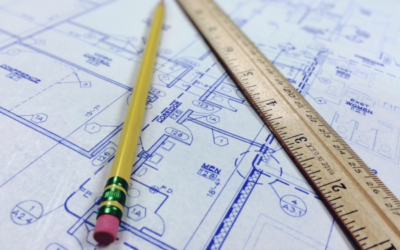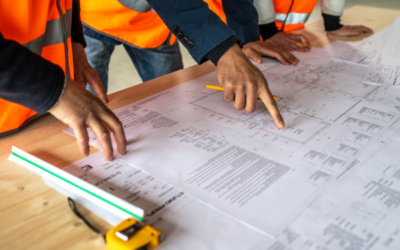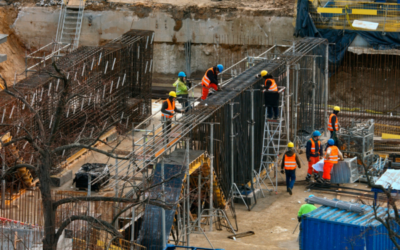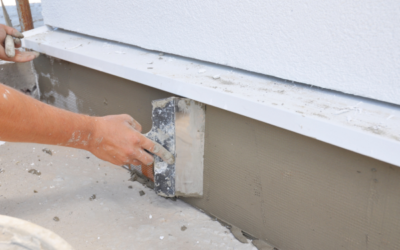MDCSystems® Taking Off with Commercial Drones
MDCSystems® has recently entered the commercial drone industry with its drone for various inspection and engineering evaluation services. The future for the commercial drone industry looks very bright. In 2015 the U.S. commercial drone market size was an estimated...
More Than Just Counting Rainy Days: Documenting Weather Delays
by Michelle N. Delehanty, PE, PMP
MDC Systems® Consultant
According to the farmer’s almanac, this upcoming winter is predicted to be more severe than last year, which already seems as if it were one for the record books. For many regions throughout the United States, that means a multitude of storms, extreme cold, and potential closings to schools, offices, and, most problematic, construction sites. These closings of construction projects can lead to schedule delays, change order requests, and ultimately claims. In order for a contractor to justify to the owner that there is indeed a weather-related construction delay, they must demonstrate four specific things: (1) that the delay is within the terms of the contract (2) that the activity delayed had a direct effect on the project end date (was on the critical path), (3) the weather event occurred in excess of the “normal” weather for the season, and (4) there is documentation of which specific activities were delayed on each weather occurrence.
The Standard of Care in a Design Build World
Design-Build Delivery can create new responsibilities for designers where they would not exist in traditional Design-Bid-Builddelivery situations and require new awareness on the part of contractors to the iterative and uncertain world of conceptual design. These new responsibilities require a paradigm shift for both Designers and Contractors as the realities of working together challenge the leadership of the organizations.
For designers the change requires them to abandon their traditionally “client only” focused advice and consent role and adopt a new paradigm of working for, or with, the contractor to deliver an acceptable and profitable product. For the contractor working with and supporting the designer changes the very nature of their previous working relationship. The contractor is now working with and for the people they are all too often at odds with concerning project delivery.
Design Professional’s Role in Minimizing Claims
Design professionals can play an important role in properly setting the course for the construction project, especially in minimizing the likelihood of claims and disputes. For example, not only can the architect serve as the master builder, but also as the master of dispute prevention and resolution.
The Dreaded Change Order
We have never met an Owner who was happy to hear, “We need a change order.” What we’ve learned over the years is that even though change orders are facts of life in construction, there are strategies to help you avoid them.changeorders-graphic
Change orders (CO) fall into two categories – owner driven and non-owner driven. Both can be mitigated.
Owner driven change orders happen when Owners change their minds, adding a window here or changing the carpet there. We’ve even seen buildings moved and floors added mid-project, which leads us to the first CO avoidance strategy.
What Standard? Under Whose Care?
Can a Designer or Owner shift responsibility for design errors and omissions by requiring an enhanced effort for construction coordination drawings by contractors?
To answer this question we will recount an example project that was bid as Design-Bid-Build where the fundamental element of the dispute was design defects with regard to spatial arrangement and sizing of system features.
Much Ado About Stucco
By Michelle N. Delehanty, PE, PMP
MDC Systems® Consulting Engineer
In recent years, the popularity of stucco siding for houses has soared. Or, depending who you ask, it’s the notoriety that has increased so steadily over the past decade. Good or bad, stucco is being talked about among builders, homeowners, and even in the news.
The Internet of Things : Managing Risk & Reward
A hot topic in the industry today is the “Internet of Things” (IoT). The IoT is the use of “smart” devices, transmitters and systems to facilitate the real time transmission of information, control of equipment and optimized operation of systems; often including or via some Internet-based communication network. The objective is to make the information available anywhere, easily and in real time to improve decision making and operations. Information is collected by the devices and transmitted via a wireless network to a centralized and/or cloud-based “head end” and control commands are sent back via the same system. The IoT has been enabled by advances in the miniaturization of computer processing power, the development of interoperable communications and processing platforms and the growing ubiquity of high-speed, wireless, broadband networks. That’s the stuff that puts your email on your smartphone.








